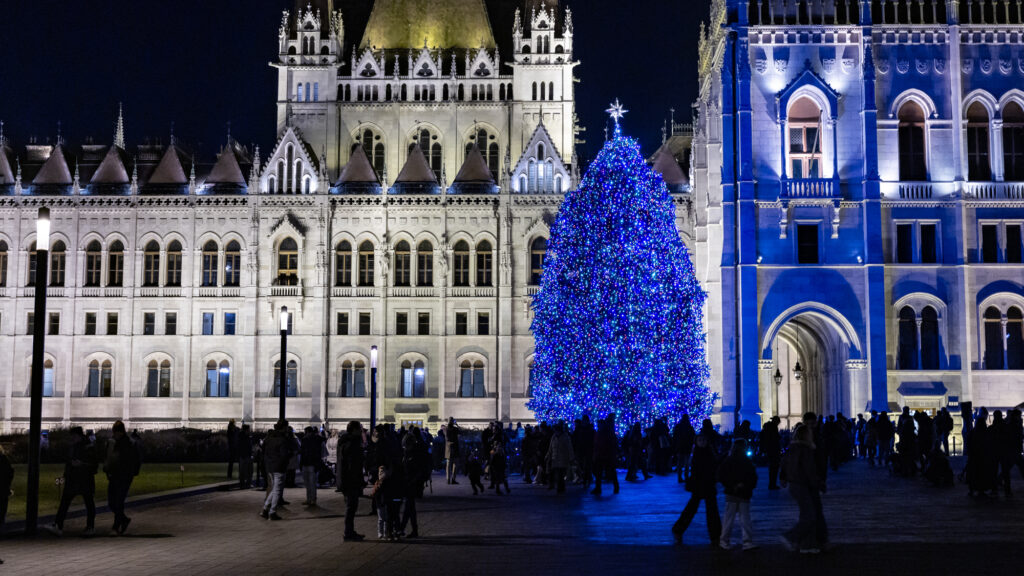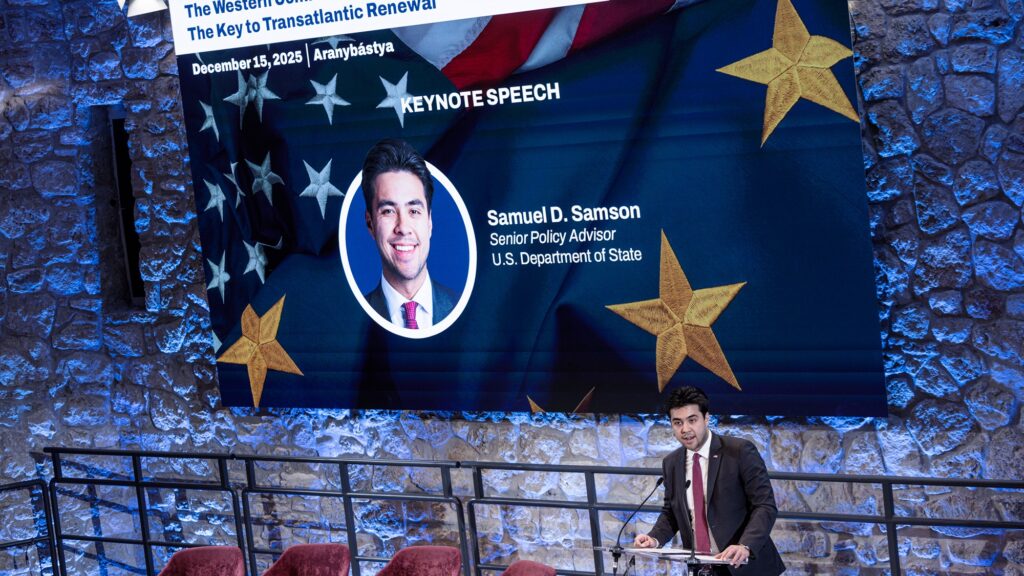Balázs Orbán, the political director of Hungarian Prime Minister Viktor Orbán, has penned a thought-provoking opinion piece on Index, analysing the global ‘fight for democracy’—though not from the usual liberal perspective.
As he argues, systems of governance are increasingly becoming matters of global competitiveness. ‘The political and institutional structure a country chooses is a key determinant of its economic performance, social stability, and long-term sustainability,’ Orbán writes, adding that liberal democracies are currently losing ground in this competition. In his view, the reason for this decline is a growing and seemingly irreconcilable divide within the Western world. ‘Nothing defines Western politics today more than the profound dichotomy between illiberal democracy and anti-democratic liberalism,’ he notes.
This fault line, he continues, is not merely theoretical; it is already shaping the institutional dynamics of the European Union, redefining national sovereignty, and influencing the future of European integration.
Liberalism Is Not Equal to Democracy
The term ‘illiberal democracy’ was first introduced by Hungarian Prime Minister Viktor Orbán in his annual speech at Tusnádfürdő (Băile Tușnad), Transylvania, Romania, in 2014. His statement that democracy is not necessarily liberal shocked much of the Western world.
But how does this relate to the ongoing struggle for democracy? Balázs Orbán explains that liberal democracy was originally meant to safeguard both the will of the majority and the ideal of individual freedom. In this classical sense, liberalism was seen as a prerequisite for the functioning of democracy.
However, over time, liberalism has shifted. It no longer primarily stands for the defence of freedom, he argues, but has instead become the vehicle for enforcing progressive values—often in direct opposition to the democratic will of the majority. This semantic and ideological transformation has given rise to a new reality: democracy is not necessarily liberal.
‘Liberalism no longer primarily stands for the defence of freedom, but has instead become the vehicle for enforcing progressive values’
To understand illiberal democracy, one must examine its contrast with liberal democracy, rooted in fundamentally different conceptions of political legitimacy and institutional purpose. In illiberal democracies, the primary aim is to implement the will of the electorate—even if that means opposing progressive norms. In liberal regimes, by contrast, ruling elites often prioritize the enforcement of progressive values, even when those values run counter to the majority will.
In liberal systems, Orbán argues, institutions built in the name of publicly accepted values—such as human rights, minority protection, and the rule of law—can begin to function without meaningful democratic oversight. As a result, the expression of popular sovereignty is weakened, and the liberal institutional framework ends up undermining both majority rule and freedom itself.
Anti-Democratic Liberalism versus Illiberal Democracy
As transnational or national institutions increasingly make decisions on civilizational questions—decisions that should reflect democratic consensus—the line between legitimate value protection and liberal arbitrariness becomes blurred. This is precisely why, according to Orbán, the democratic nature of liberal systems is now increasingly being called into question. This erosion of democratic legitimacy is what he terms ‘anti-democratic liberalism’.
In contrast, illiberal democracies have emerged as a response to the disruptions caused by globalization, mass migration, liberal hostility towards national identity, the spread of woke ideology, and the influence of supranational institutions that operate independently of the popular will. In these systems, parliaments and governments with clear democratic mandates are reclaiming the right to self-determination, which liberal networks and the institutions they dominate have sought to erode. The state, in this framework, is not merely a guardian of public order but an active shaper of it—particularly when backed by majority support.
‘Illiberal democracy is more than a political model; it is a value proposition for the post-liberal era’
As Orbán continues, democratic values are not limited to individual liberties. National self-determination, child protection, and the preservation of cultural identity are also essential elements of a democratic society. ‘Thus, illiberal democracies are not against freedom—quite the contrary—they represent a new understanding of it with a community dimension,’ he writes.
Illiberal democracy, he contends, is more than a political model; it is a value proposition for the post-liberal era. It offers an alternative that sees national traditions, cultural specificities, and sovereignty not as obstacles but as foundations for a new form of social and international cooperation—one based on shared values rather than ideological conformity.
In conclusion, Orbán writes that Hungary’s strategic posture reflects a modern adaptation of the Cold War-era concept of containment—not just in geopolitical terms, but ideologically. The country aims to resist the expansion of progressive liberalism, which it views as a threat to traditional democracy and national sovereignty. Hungary’s grand strategy, therefore, is to uphold its democratic values in defiance of Western mainstream pressures, positioning itself both as a defender and architect of future political realities. Aligned with the new US administration, Hungary sees the defence of freedom, sovereignty, and the will of the people as a shared historic mission.
Related articles:







